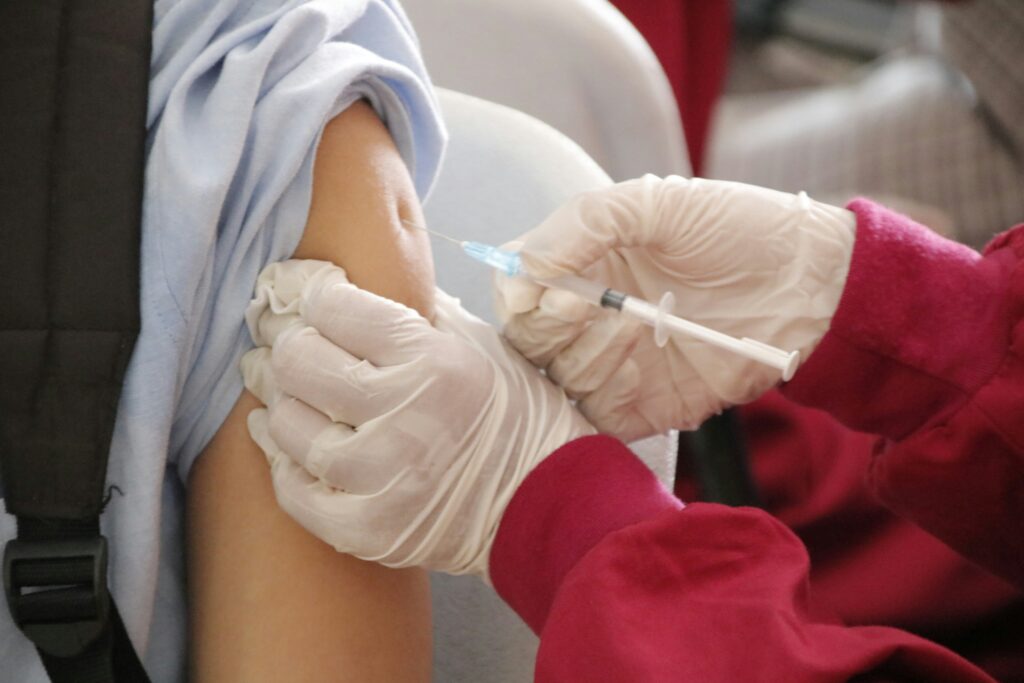Does digital health literacy impact vaccine acceptance?
When it comes to vaccines, there are lots of reasons why some parents feel hesitant. Recently, researchers have started looking at something called digital health literacy which is defined by how well people can find, understand, and use health information online. With so many voices on the internet debating whether vaccines are safe or effective, a parent’s ability to sort through all that information can make a big difference in the choices they make for their children.
According to the World Health Organization (WHO), vaccines save between 3.5 and 5 million lives every year, making them one of the most effective public health tools we have. Beyond preventing deaths, vaccines also reduce illness, lower the burden of disease, and help people live longer, healthier lives around the world. But despite their benefits, vaccine hesitancy remains a major challenge. In fact, in 2019, the WHO listed it as one of the top ten threats to global health. A big driver of this hesitation comes from online spaces, where anti-vaccination groups have built strong communities. These groups often share dramatic “vaccine injury” stories without fact-checking, highlight ingredients in vaccines as so-called “neurotoxins,” and leave out important context, like the fact that those same substances are commonly found in everyday items and at safe levels.
Many studies have investigated the association between digital health literacy and vaccine acceptance. One study by Ashfield et al., 2024 investigated parents digital health literacy levels and vaccine acceptance using a self reported eHealth Literacy Scale that measures the ability to find, assess and use online information to make health decisions. Interestingly they stated that 60% of Canadians lack the health literacy skills to make truly informed health decisions. Ultimately though, they found that digital health literally levels predicted vaccine acceptance. A similar variable they investigated was education level, as parents with a graduate level education had higher levels of health literacy than their uneducated and even college educated counterparts. Another study by Zhang et al., 2023 also found that parents with stronger digital health literacy were less likely to show hesitancy to vaccinations.
Interestingly a study by Torun et al., 2025 found that although increasing digital health literacy can increase vaccine acceptance it may lead to increased vaccine hesitancy due to exposure of misinformation. Furthermore, a study by Aharony and Goldman, 2017 suggested that increased access to online health information and digital health literacy do not necessarily result in vaccine acceptance and positive attitude toward childhood vaccinations. They credited this finding to their research which highlighted that parents who have increased digital health literacy were found to be more skeptical of vaccinations. It was stated that parents with high functional, communicative, and critical health literacy were at higher risk for vaccine avoidance.

Most studies exploring digital health literacy and vaccine acceptance highlight the need for clear, accessible education about vaccines. When parents have reliable information that’s easy to understand, they’re better equipped to make informed choices for their children. These studies also emphasize the importance of recognizing parents’ varying levels of digital health literacy, suggesting that health resources should be designed with this in mind to ensure information is both effective and accessible. It’s clear that more research is needed to fully understand this connection. Some studies suggest that higher digital health literacy is linked to greater vaccine acceptance, while others point to a relationship with vaccine hesitancy. Untangling this complexity would be hugely valuable for those who create health information, as it could guide them in choosing the most effective ways to share accurate, trustworthy messages.
